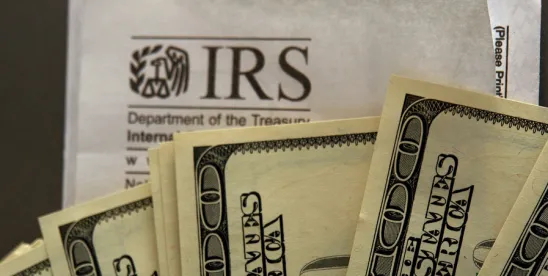Taxpayers who made payments to the Internal Revenue Service (IRS) that included underpayment interest and/or failure-to-file/pay penalties that accrued during all or part of the period between January 20, 2020, through July 10, 2023, should consider filing a refund claim with the IRS to potentially recover accrued interest and penalty amounts.
Internal Revenue Code (IRC) § 7508A (as in effect during the COVID-19 pandemic), legislative history, regulations, and the US Tax Court’s opinion in Abdo v. Commissioner, 168 T.C. 148 (2024), provide the basis for potential refund claims. IRC § 7508A(d) provides for a mandatory postponement period of certain tax-related obligations, including the suspension of the accrual of underpayment interest for the duration of the COVID-19 incident period plus 60 days (January 20, 2020 – July 10, 2023). IRC § 7508A also appears to have paused the increase of failure-to-file/pay penalties, which are based on the time during which the taxpayer is not in compliance.
Taxpayers considering this refund opportunity should be aware that the statute of limitations to file a refund claim expires three years from the filing deadline of the original tax return or two years from the date on which payment was made – whichever is later (unless the statute of limitations period was otherwise extended). This refund opportunity may apply to underpayment interest and/or penalties paid with respect to federal income, estate, gift, employment, or excise taxes.





 />i
/>i

